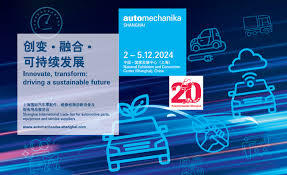
Auto components and systems suppliers from Turkey and the world will be on show in Istanbul between October 30 and November 2 at the 14th annual Otomotiv expo.
The organizers, Istanbul Trade Fairs (ITF), are confident that it will be bigger than Otomotiv 2007, which had nearly 540 exhibitors from 14 countries and 35 000 visitors. They are gearing up for 45 000 visitors.
Turkey’s GDP growth has remained at a healthy 5% for the past two decades. Parts exports are growing, with the focus on replacement components. In 2006, exports earned US$4.6 billion. The main markets are Germany, Italy, France, The United Kingdom, Poland, Belgium, The USA, Spain, Romania, Russian Federation and Iran.
Turkey is also the European Union’s largest bus and coach manufacturer and its third largest light commercial vehicle and truck manufacturer, turning out 1.2 million vehicles a year. The target by government and industry is two million vehicles by 2015.
ITF is a joint venture of CNR Holding and the ITE Group. ITF’s international visitor department has representatives in 28 countries to identify and bring buyers to the show. Automotive Industries (AI) caught up with Ceyda Erem, president of CNR & ITF Group of companies and ask what would be new at OTOMOTIV 2008 .
Erem: We getting support from the Chambers of Commerce from every Turkish city that has an automotive sector. This will help attract more exhibitors and visitors.
AI: How would you rate the success of OTOMOTIV 2007?
Erem: International interest has increased at a remarkable rate, with international visitors and exhibitors made up about 25% of the total.
AI: What do you expect for OTOMOTIV 2008?
Erem: Thanks to local economic growth, we expect to grow. This year, the exhibition will host more than 200 international stands, from Germany, Italy, France, Austria, the UK, the Netherlands, China, Taiwan, Korea, India, Iran, and Thailand. The number of international exhibitors increases each year.
We see a similar growth in exhibitors. Turkey is becoming a focal point in the international arena and our show is becoming more and more important in promoting Turkey. These shows are the best medium to establish trade partnerships.
AI: Has the global recessionary trend affected Turkey’s auto sector and if so, how?
Erem: The sector is benefiting. Having a competitive structure and the capability to manufacture quality and durable products using the latest technologies at reasonable prices, Turkey is in a strong position to become a major manufacturing base and market.
AI: What are the strengths of Turkey’s automotive industry and what are some of the challenges it faces?
Erem: Turkey has the most developed automotive industry in the region which offers a unique export and production base, with close bilateral relations with EU, the G8, and Eurasia. It also has experience with exports, easy access to potential emerging markets.
In terms of human resources, Turkey has highly-skilled human resources both in production and management and sustainable and improvable competitive workforce with low labor cost and culture of productivity. Since the 1990s, we have accumulated technological know-how, investment in R&D has grown rapidly, quality management systems have become world-class, and widespread distribution and marketing networks integrate Turkey with the world automotive industry.
But on the other side we also have some challenges ahead. These include inadequate investments in the sector, the high cost of raw materials due to capacity utilization and production below economies of scale.
But for sure Turkey will reach all of its goals regarding the automotive industry in the next few decades and strengthen its role as the most important manufacturer in the region.














More Stories
Shaping the future of the automotive industry at Automechanika Shanghai 2024 with the most fringe programme events and speakers yet
Some Ways How Motorists End Up in Collisions at U-Turns
Maximise Margins with Proven PPF Tactics